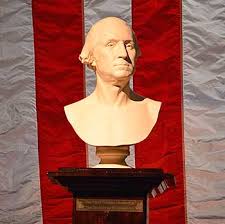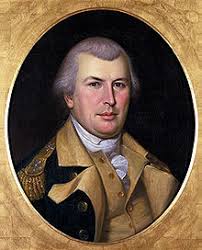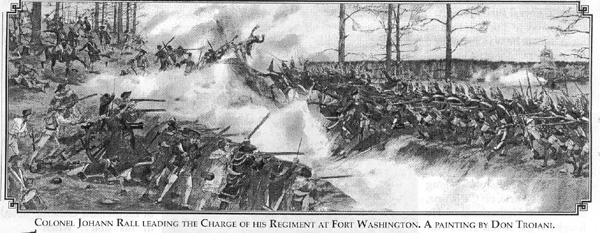
General George Washington
“Good men are rarer than good days, and more valuable.”
– George Washington on Leadership, Richard Brookhiser
What should a leader do when a trusted subordinate fails? Not just fail…but fail miserably…a major blunder. Many are justifiably looking for a scalp. You have to make a decision on their fate.
The easy course, and often times the right course, is to quiet the masses, hold the offending person accountable and let them go. Is there any reason not to?
On the eve of our beloved Independence Day, I thought it fitting to look at what General George Washington did when one of his trusted generals suffered a devastating and humiliating defeat very early in the 8-year American Revolutionary War.
General Washington defied the critics and rendered a decision that, while unconventional, helped alter the course of world history.
The major blunder and the boss’s reaction…
Despite having been in only one battle in his life, General Nathanael Greene rose quickly up the ranks to become a trusted member of Washington’s leadership team. The qualities that Washington saw in Greene that led to this meteoric rise were optimism, decisiveness, hard work, and extraordinary organizational skills.

General Nathanael Greene
In 1776, General Greene was assigned the defense of New Jersey. Specifically, he was tasked to oversee two forts that faced each other across the lower Hudson River – Fort Lee on the New Jersey side and Fort Washington on the New York side (interestingly, the George Washington bridge connects these 2 points today). Greene’s strategy was to split his meager forces and continue to defend both forts.
…Washington saw the untapped brilliance in Greene.
Washington was away from the New Jersey area and wrote to Greene that he doubted the wisdom of occupying both forts. He wrote to Greene suggesting he withdraw the 2900 men at Fort Washington and move them to Fort Lee. Greene wrote back to Washington that he disagreed and requested permission to retain both forts. Washington acquiesced to Greene’s wishes.
It turns out that Washington was right.  Shortly after this exchange of letters Fort Washington was surrounded by thousands of British troops and surrendered. All 2900 men, badly needed to sustain the fledging American army, were either killed or taken prisoner. It was the worst American defeat of the war up to that point.
Shortly after this exchange of letters Fort Washington was surrounded by thousands of British troops and surrendered. All 2900 men, badly needed to sustain the fledging American army, were either killed or taken prisoner. It was the worst American defeat of the war up to that point.
What did Washington do after this devastating defeat?
Despite a loud and sustained outcry from both the public and congress Washington did not fire Greene. Instead he kept him close to his side over the ensuing months.
That turned out to be a very wise decision. Greene went on to win many crucial battles and emerged from the war with a reputation as Washington’s most gifted and dependable officer. Greene’s leadership after the Fort Washington debacle is viewed by historians to have been crucial to America’s victory in the war. If Washington had not made this courageous decision, the 4th of July we celebrate today could have ended up as just another lazy summer day in this part of British North America.
Decide if, in the long run, their skills may be required to win the day.
Why did General Washington retain Greene?
While the definitive answer alludes historians, most agree that Washington saw the untapped brilliance in Greene. Washington ignored the public clamor and wisely looked over the horizon. He correctly judged that, in the long run, Greene’s extraordinary leadership would be required to win the day.
What’s the lesson for today’s leader?
 When (note when…not if) a subordinate commits a significant blunder and the sharks smell blood in the water, take a breath.
When (note when…not if) a subordinate commits a significant blunder and the sharks smell blood in the water, take a breath.
Decide if, in the long run, their skills may be required to win the day. If so, consider keeping them. If not, it may be time to cut your losses.
Be a great leader. Be discerning. Ignore the noise. Look over the horizon. Carefully weigh the potential of the employee before taking action. While your ensuing decision probably won’t alter the course of world history, it may well significantly alter the course of your organization’s future.
